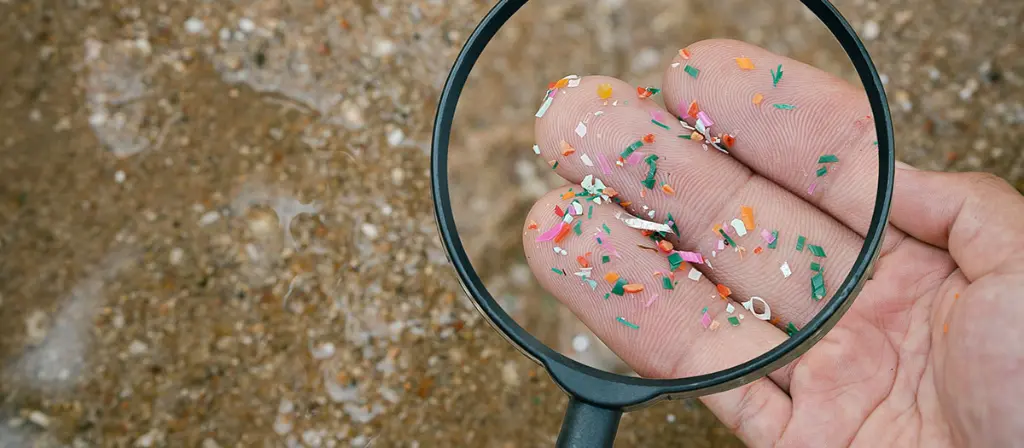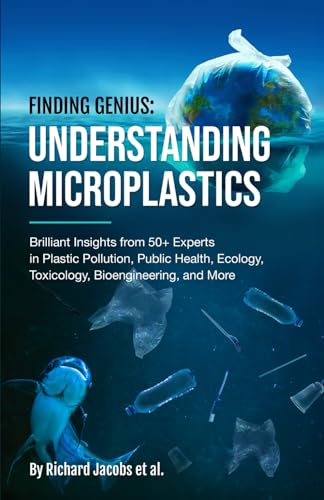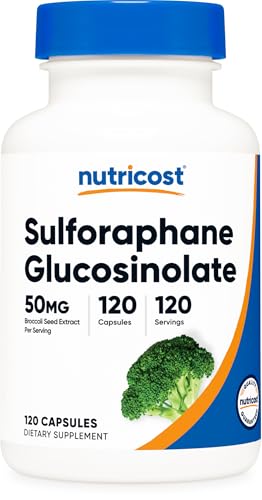Microplastics have become a silent threat lurking in our environment, food, and even the air we breathe. These tiny plastic particles, often smaller than five millimeters, are more than just a form of environmental pollution; they are a growing health concern. Research shows they can accumulate in our bodies, potentially disrupting cellular health and overall well-being. If you're worried about the impact of microplastics on your health, you're not alone. This article explores practical ways to minimize their effects through nutrition, targeted detox methods, and supporting your body's natural systems like the excretory system and microbiome.
Drawing from credible studies and expert insights, we'll cover how to prioritize nutrients from food over dietary supplements, the role of compounds like sulforaphane, and actionable steps to help your body eliminate toxins. Let's dive into strategies that can empower you to take control of this emerging health challenge.
Understanding Microplastics and Their Impact on Cellular Health
Microplastics are pervasive, found in everything from seafood to bottled water. According to a study discussed on Jon Brudvig's Substack, there is growing evidence that these particles can mobilize within the body, embedding themselves deep in tissues and potentially affecting cellular health. This buildup over time may contribute to inflammation and other health issues. While we're still learning about their long-term effects, it's clear that reducing exposure and supporting the body's natural defenses are critical steps. By focusing on gut health and strengthening your microbiome, you can create a more resilient system to handle these unwanted invaders.
Finding Genius: Understanding Microplastics: Brilliant Insights from 50+ Experts in Plastic Pollution, Public Health, Ecology, Toxicology, Bioengineering, and More
Two thousand four hundred miles from the east coast of North America, 373 miles of ocean bejeweled by nine volcanic islands and eight Formigas, and one plastic bottle—one of the only signs of human existence in sight.This is the Azores archipelago on the edge of the North Atlantic Gyre’s circling currents. This is where, at 7,713 feet in elevation, Mount Pico reaches for the sky, claiming the highest point in Portugal. It’s where some of the tallest mountains in the world live, grounding themselves at the very bottom of the ocean.After nine days at sea, environmental toxicologist Stephanie Wright found herself watching that one plastic bottle bob in tandem with the gentle ebb and flow of the water. It was silent, but it had a story to tell and still does—a story that relates to everything from microscopic microbes to elephants and tigers to the delight in the face of a child as they dig for a Super Mario toy at the bottom of a smiling McDonald’s Happy Meal box, and even to the very clothes on your back. And to you, right down to the blood cells coursing through your veins.Although seemingly alien and isolated, carried astray from others of its kind, Wright knew that plastic bottle was surrounded by a family—likely multiple families—of plastics, different in size, shape, color, composition, and planned purpose but united by a fundamental commonality: synthetic polymer-based particles on a path to a destructive end.Invisible from where she stood, these particles lingered just below the water’s surface on which the bottle floated, and many more rested 20,000 feet down to the seafloor and base of Mount Pico. Also invisible to her, these particles lingered in the air at the summit of Mount Pico, and in the air rushing into her lungs as she breathed in the contrasting organic beauty she could see.In many ways, this book is a biography of that plastic bottle: what it’s made of, how it differs from other plastics, why it ended up where it did, where it might be headed, who and what it affects, and when a millisecond of genius insight might lead to a complete reinvention of itself and its kin. Read more
View on AmazonPrioritizing Nutrients from Food Over Dietary Supplements
When it comes to protecting your body from microplastics and other toxins, getting essential nutrients directly from food should be your first line of defense. Whole foods are digested more slowly than dietary supplements, allowing for better absorption and often coming with beneficial co-factors that reduce potential side effects. For instance, foods rich in antioxidants can support cellular health and combat the oxidative stress potentially caused by microplastics. Research from MDPI highlights the importance of dietary antioxidants in mitigating environmental toxin damage. So, load up on colorful vegetables, fruits, and whole grains to give your body the tools it needs naturally.
The Power of Sulforaphane in Combating Microplastics
One promising compound in the fight against microplastics is sulforaphane, found in cruciferous vegetables like broccoli and kale. According to Oasis Health, sulforaphane may help by supporting detoxification pathways in the body, potentially aiding in the removal of harmful particles. However, a word of caution: sulforaphane supplements are often unstable or contain only drug precursors that need activation in the gut. You're better off getting it directly from fresh produce to ensure potency and effectiveness. This approach not only supports your fight against microplastics but also boosts overall gut health.
Nutricost Sulforaphane Glucosinolate (SGS) (120 Capsules) - 50 mg Broccoli Seed Extract Per Serving
Concentrated Broccoli Extract: Each serving delivers 50 mg of broccoli seed extract in a convenient capsule form.
Easy to Take: Simple, once-a-day capsule makes it easy to incorporate into your daily routine.
Capsule Convenience: Forget the taste of broccoli; get your broccoli extract effortlessly with our neutral-tasting capsules.
GMP Compliant: Manufactured in a facility adhering to Good Manufacturing Practices, providing a consistently high-quality product.
Third-Party Tested: Rigorously tested by independent, accredited laboratories to ensure purity and potency.
View on AmazonSupporting Your Excretory System to Eliminate Toxins
Once microplastics or other toxins like heavy metals and forever chemicals are mobilized in your body, the next question is how to get them out. Your excretory system, including organs like the liver and kidneys, plays a vital role here. Supporting these organs with proper hydration, a fiber-rich diet, and specific detox protocols can make a big difference. Insights from Dr. Robin Berzin's personal protocol emphasize the importance of tailored strategies to enhance elimination. Additionally, using a sauna can help you sweat out toxins, providing an extra layer of support as your body works to expel harmful substances like excess estrogen or other pollutants.
Building a Resilient Microbiome for Long-Term Defense
Your microbiome, the community of microorganisms living in your gut, is a powerful ally in managing the effects of microplastics. A healthy microbiome can influence how toxins are processed and eliminated from your body. Research published on PMC suggests that a balanced gut environment can mitigate the impact of environmental pollutants. To nurture your microbiome, focus on fermented foods, prebiotics, and a diverse diet. This not only strengthens your gut health but also creates a robust foundation to tackle ongoing exposure to microplastics and other harmful substances like heavy metals.
Taking Control of Your Health in the Face of Microplastics
The challenge of microplastics is real, but so are the solutions. By prioritizing nutrients from whole foods, leveraging powerful compounds like sulforaphane, and supporting your excretory system and microbiome, you can build a strong defense against these pervasive particles. Incorporating practices like sauna use for detox and focusing on gut health can further enhance your body's resilience. While the science around microplastics is still evolving, as noted in various studies, taking proactive steps now can help safeguard your cellular health from environmental pollution, heavy metals, forever chemicals, and more. Start small, stay consistent, and empower yourself with knowledge to address this modern health concern head-on.


